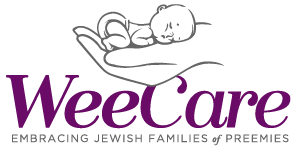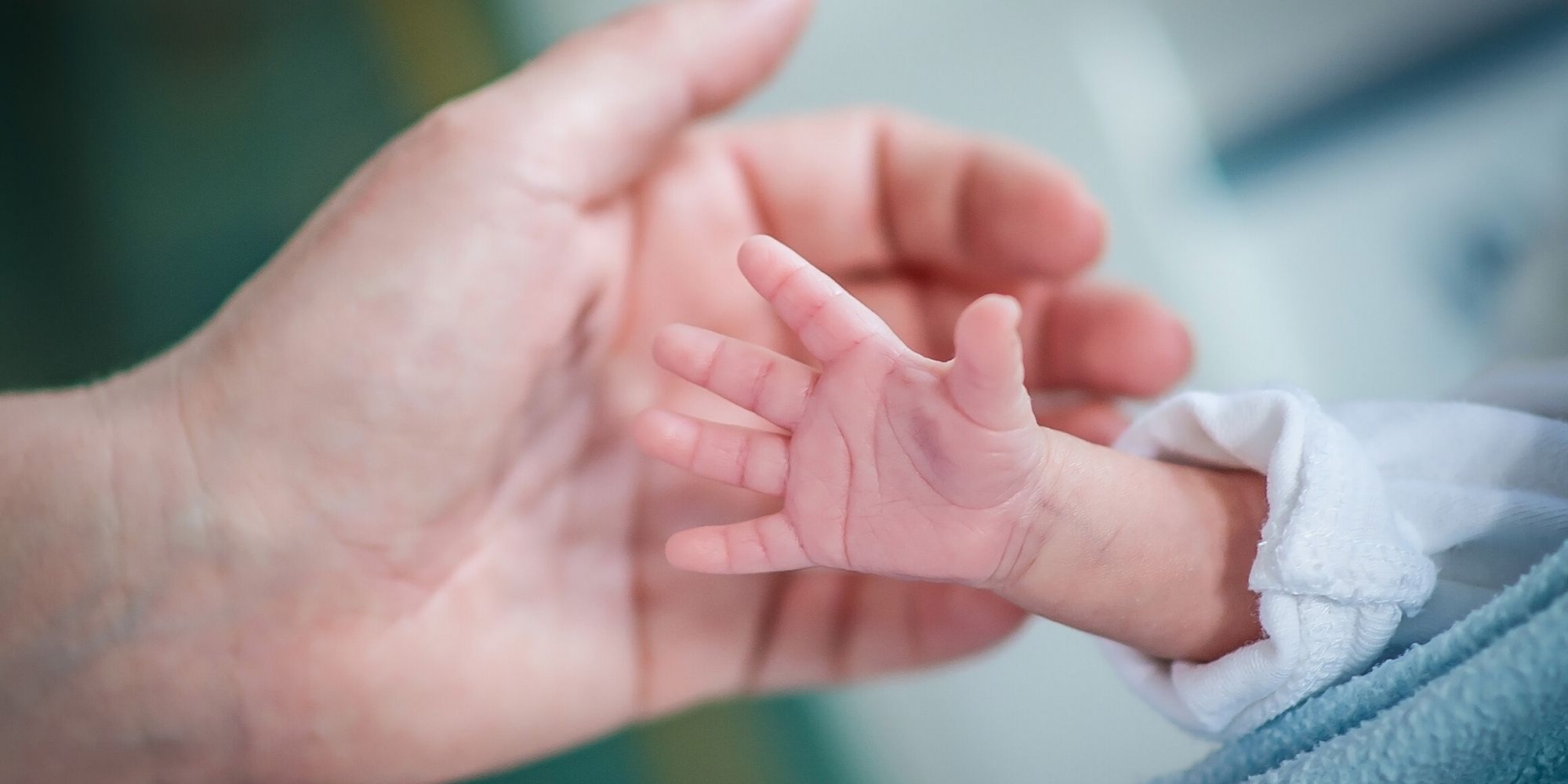My first moments of motherhood are etched in my brain in indelible print. Sitting by my son’s incubator day after tedious day, I tried to glimpse his body through the tangled wires and machinery. When the Huggies newborn diaper covers your baby from head to toe, it’s enough to make any new mother wonder if she got more than she bargained for.
And so I sat, and sat, and sat. I was not allowed to hold him due to the line that he had running into his umbilical artery through his microscopic bellybutton. Instead I moved aside the tangled rainbow of wires, and tried to find a fuzzy place to stroke. I had read that massaging premature infants was a stimulant for them and this kid sure could have used some of that.
When he reached a stage where he was ready for food, we were jubilant. Feeding meant draining my own body of milk, and sending a few drops of it down a tube that started in his nose and ended in his stomach cavity. My husband held the tube, and I held the baby (finally!). It was the closest thing to mother/child bonding you could find in the neo-natal intensive care unit.
Midnight was weighing and bathing time. We learned to do it all ourselves, rendering the nurses extraneous (almost). We burned the midnight oil night after night in that hospital, like truckers guarding a big haul.
He was our child, and through many weeks of intensive care, we staked that claim over and over again. Like a pioneer explorer sticking his post in a mound of dirt, I claimed my little slip of a life, through a stroke of the cheek, an original lullaby, and a drop down the feeding tube.
Love was in the air.
NATURE OF LOVE
In his treatise on kindness, Rabbi Eliyahu Dessler makes a groundbreaking statement on the nature of love. He posits that a relationship based upon giving is one in which love will grow ad infinitum. Why? Because love is an outgrowth of the giving process.
My students often had a bone to pick with this theory. In a loving relationship, isn’t giving a natural outgrowth of love? It was a matter of which came first, the chicken or the egg, but the implications were far reaching. In their eyes, love was an electrical impulse that translated into giving. According to Rabbi Dessler, the more you give, the more electrical current you create in your relationships. He puts the steering wheel in our hands, instead of leaving it up to some inexplicable force.
I must admit, I empathized with their point of contention. As a new mother, I knew that my love for my child was just that — intangible and beautiful, unforced and uncultivable.
Approximately two years after our first child was born, I found myself sitting in the same neonatal unit with son number two. This one was a “hefty” 33-weeker. We were miles past son number one. Sitting there after delivery, I watched his wan face redden as he tried to cry, but emitted no sound, as the respirator was suppressing his larynx. He was not ready for food yet, and I stored God’s precious elixir in little bottles in the NICU freezer.
It was all the same. The grey tweed upholstered chairs, the nurses in their one piece pinks, and the pungent smell of antiseptic soap. I felt as if I were watching a re-run of a medical drama.
I was discharged without my child, and again that old familiar feeling of stepping over the threshold of our home without the tiny life that I had to leave behind. I knew, though, what the next few weeks heralded. I would be there the next morning.
My loyalties were painfully divided over the next weeks between my emotionally needy toddler at home, and the tiny bundle lying supine in his incubator. I ran to the hospital each morning to fulfill my duty, and then rushed back to pick up my eldest from playgroup. Whenever feasible, I returned a second time in the evening, but I had to go back and relieve my husband so that he could visit as well. I felt as if some very core part of me was torn in half, somewhere deep inside where my brain didn’t seem to reach.
My husband went to the hospital often to check on our baby. He brought me back reports, some of which I relished. Others I would have preferred not to hear.
I knew things were different within me that first Shabbat afternoon that son number two was in the hospital. “Yael, do you want to walk over to see the baby?” my husband asked.
“Nah. You go. I’m tired. I need to build up my strength. I’m still just after birth.” (That never stopped me before.)
My husband just kind of raised his eyebrows and looked at me askance. He went. I stayed. Cocooned in my blanket, I could almost pretend that my life was on cruise control.
I did what I had to do. I did not in any way neglect my responsibilities as a parent to either of my children. That is why I am not sure why it took me for a spin when someone offhandedly remarked later that week:
“You must really love that baby!”
I must really love that baby. I mean, of course I must. Which mother does not love her child? I thought of him for a moment, with the little gauze strip covering his eyes to protect him from the bilirubin lights. He looked like he was tanning when I saw him this morning.
“I mean, obviously,” I replied.
I went back to my dishes, scrubbing away bits of residue with a vengeance. Do I love my child? My baby? Is there anything more inglorious than a mother who doesn’t love her child? Am I that type?
A few weeks later we brought him home. This strange child that I had been visiting all this time was now sleeping in my bedroom. The indispensable nurses were dispensed of. At three in the morning I awoke from my half-sleep to his cry. I picked him up — a four-pound butterball, and I nestled him in my arms. I breathed in the fresh scent of Johnson’s baby bath and I ran my nose softly along the rim of his scalp. I watched him open and close his little mouth, looking, looking for me. He needed me. He needed me!
I gave to him.
And love was in the air.
Rabbi Dessler was right.
(Aish-Yael Mermelstein)


